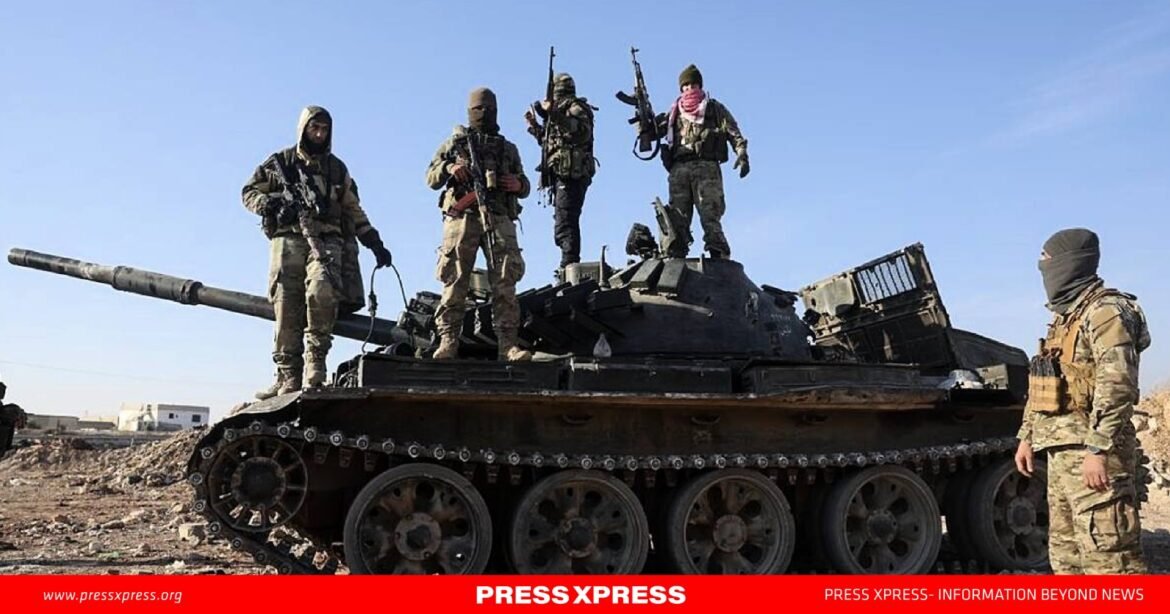After more than a decade of civil war, Syrian President Bashar al-Assad is facing a resurgent threat that could redefine the country’s future. A swift and unexpected offensive by anti-government insurgents has not only recaptured major cities such as Aleppo and Hama but has also exposed the regime’s vulnerabilities amidst shifting regional dynamics and exhausted resources.
Assad’s Precarious Position
Once hailed as the victor in Syria’s brutal civil war, Assad’s grip on power now appears tenuous. His military, hollowed out by years of war and economic collapse, is struggling to mount an effective response. Insurgent forces, led by groups such as Hay’at Tahrir al-Sham (HTS), have made significant territorial gains, capitalizing on Syria’s weakened state institutions and the retreat of regional allies like Hezbollah.
Russia, once a critical pillar of Assad’s survival, is preoccupied with its war in Ukraine. Iran, another staunch supporter, has seen its regional proxies degraded, partly due to Israeli strikes and its own economic challenges. These shifts have left Assad with limited options, raising questions about his ability to sustain control.
Regional and Global Repercussions
The renewed fighting in Syria reverberates far beyond its borders, threatening to reshape regional power dynamics:
- Arab States: Countries like Saudi Arabia and the UAE, which recently resumed ties with Assad, are now confronted with a dilemma. While they have sought stability in Syria to curb Iranian influence, the insurgency risks reigniting instability and undermining their efforts to reintegrate Assad into the Arab fold.
- Iran: Syria’s strategic importance to Iran cannot be overstated. It serves as a land corridor to Hezbollah in Lebanon, a key element of Tehran’s “Axis of Resistance.” A collapse of Assad’s regime would deal a significant blow to Iran’s regional ambitions, forcing it to reconsider its strategy.
- Turkey: Backing elements of the Syrian opposition, Turkey has sought to leverage the insurgency to counter Kurdish groups and push for concessions from Damascus. However, Ankara’s balancing act—supporting the rebels while seeking rapprochement with Assad—may become increasingly untenable.
- Russia: Losing its foothold in Syria would be a geopolitical setback for Moscow, undermining its influence in the Middle East at a time when its resources are stretched thin by the conflict in Ukraine.
The Humanitarian Toll
The resurgence of violence threatens to worsen an already dire humanitarian crisis. Millions of Syrians remain displaced, and the country’s infrastructure is in ruins. Renewed fighting risks triggering another wave of refugees, exacerbating pressures on neighboring states like Turkey, Jordan, and Lebanon.
What Lies Ahead
Assad’s survival hinges on his ability to regain military momentum, but the odds are stacked against him. Analysts note that while his regime has previously weathered existential threats, its current state—fractured, economically crippled, and isolated—renders it more vulnerable than ever.
For the international community, the challenge lies in addressing the crisis without empowering extremist elements within the insurgency. As the conflict evolves, Syria once again emerges as a flashpoint in a region fraught with competing interests and unresolved tensions.
The coming weeks will likely determine whether Assad can reclaim his hold over Syria or whether the country plunges further into chaos, reshaping the balance of power in the Middle East.


